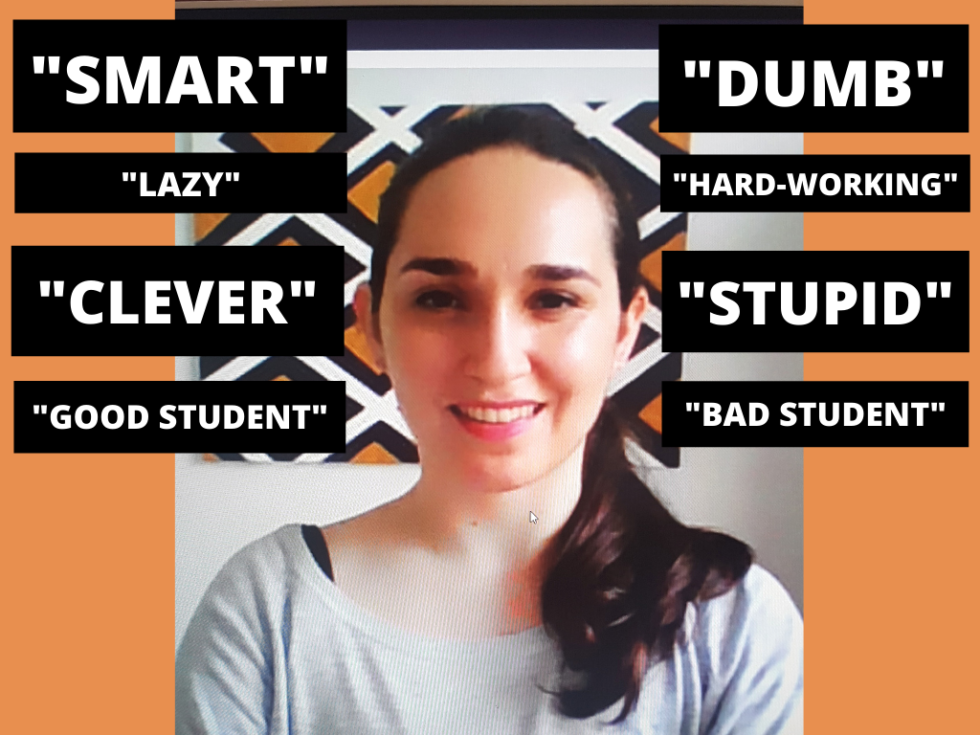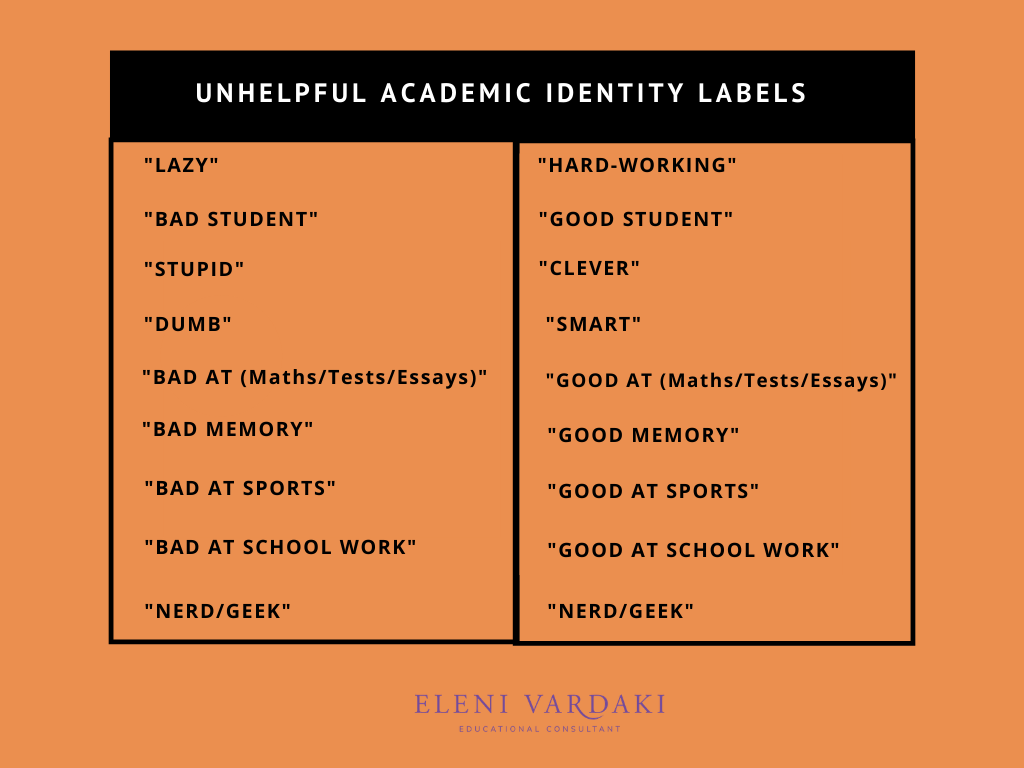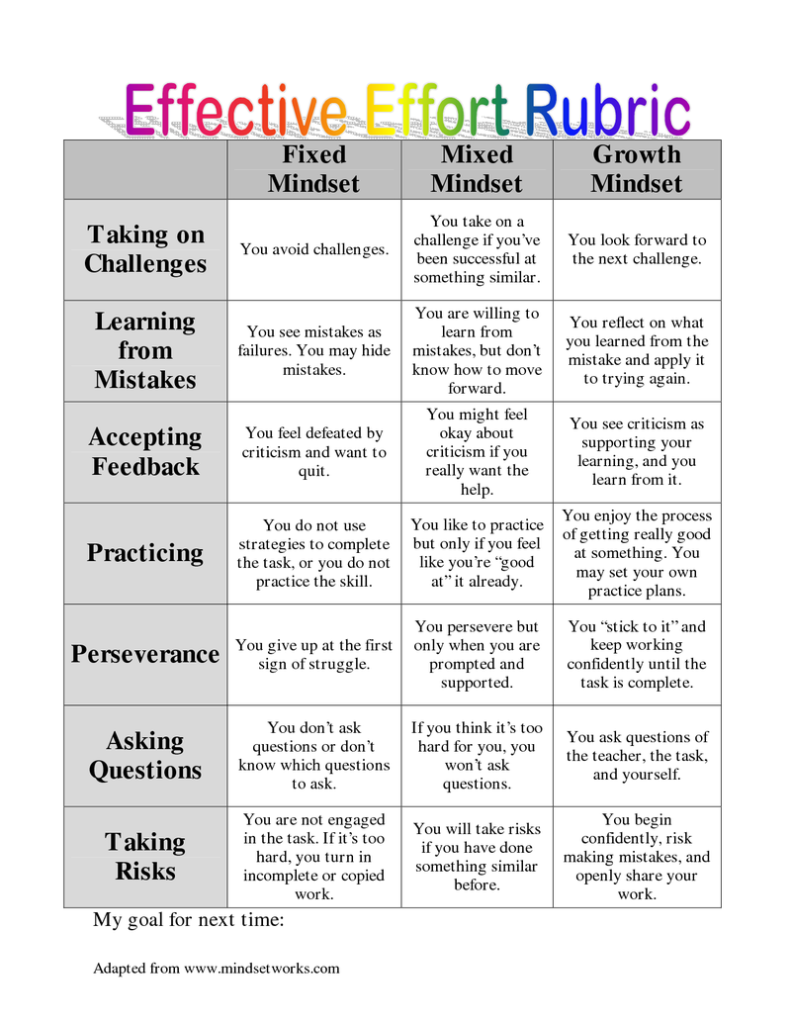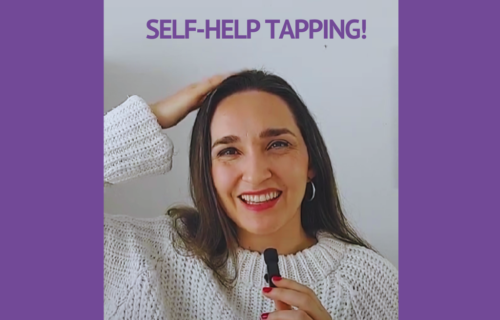
Letting Go of Unhelpful Labels
WHAT’S THE ISSUE: Students label themselves a lot. In this article, I talk about:
- The unhelpful academic identity labels students put on themselves that affect their ability to enjoy greater academic success and well-being.
- How unhelpful identity labels can affect a student’s confidence, focus and motivation to try their best when doing academic work.
- How I work with students who are being held back by the unhelpful labels they have put on themselves, to boost their academic self-esteem.
When students start letting go of the unhelpful labels they use to describe themselves, they are free to move from the disempowering Fixed Mindset to the more empowering Growth Mindset.
UNHELPFUL IDENTITY LABELS AND STUDENT WELLBEING
What is most important for me, when working with a student who is stuck in stress or overwhelm, is to explore what unhelpful identity labels a student uses to describe him or herself. However, I would like to take this opportunity to also invite parents to take a moment to self-reflect on whether they as parents have a Fixed Mindset, which may be contributing to their child’s Fixed Mindset and self-labelling. You sometimes see well-meaning parents, who are not familiar with Dr Carol Dweck’s work on the importance of cultivating a Growth Mindset for student wellbeing and achievement, labelling their child with unhelpful Fixed Mindset identity labels (e.g. ‘You are a smart boy’, ‘You are such a pretty girl!’ ‘You are a smart girl, but you are lazy. If you tried, you would get good grades’). These unhelpful identity labels increase the chance that a child will develop a Fixed Mindset. Yet the students who become the most confident (as in ‘healthy confident’, rather than ‘arrogant’) high-achievers have a Growth Mindset.
As I sat down to write this article, I was reflecting on the unhelpful identity labels I hear stressed and overwhelmed teenagers and uni/college students using when they describe themselves, or the people in their peer group ‘bubble’. Let me start by sharing 3 practical examples of how students’ wellbeing, confidence, and ability to focus and motivate themselves improved after they started letting go of unhelpful academic identity labels.

EXAMPLE 1: “I’M JUST LAZY”
I hear this a lot from Middle School and High School students I mentor whose grades are going downhill. When I ask them “Who labelled you as ‘LAZY’?” They respond: “I labelled myself as lazy”. Is it surprising that a student who labels themselves as ‘lazy’ will struggle to motivate themselves to do their best when studying for tests, exams or school work? When they realize that one of the reasons why they are behaving this way is because they had developed a Fixed Mindset, their awareness of what’s actually going on and what’s possible starts to go up.
Last month, I wrote an article on how I use the Enneagram to help student’s become more aware of their stress levels, and of how stress affects their ability to focus more, stress less and motivate themselves. I have noticed that students who self-identify as having the Enneagram 9 (“Peacemaker”), the Enneagram 7 (“Adventurer”), and the Enneagram 4 (“Individualist”) stress response patterns tend to label themselves as “lazy” more than others…when they are unaware of their particular stress patterns. Having low self-awareness, these students will observe their own lethargic, low energy, apathetic responses to school work on a surface-level, and simply label themselves as “a lazy person”.
But the truth is that some students are more prone to going into a shut-down, or flight response to stress, and others are more prone to go into a fight response to overwhelming levels of stress (e.g. overworking, overdoing, unhealthy levels of perfectionism). For people who tend to go into shut down or ‘flight’ when overwhelmed by stress, they can start to find it hard to break the cycle of escaping into an imagined or virtual reality (i.e. gaming addiction, excessive daydreaming, Netflix, mindlessly scrolling on social media).
Becoming more self-aware is empowering for students. It’s empowering to become more aware of how a Fixed Mindset towards intelligence, combined with low self-awareness of their particular stress response, is holding them stuck in a state of under-achievement and lack of motivation to try their best in school. When these students choose to start letting go of the old “lazy” label that they had put on themselves, replacing it with a more empowering Growth Mindset way of thinking, their productivity increases.
EXAMPLE 2: “I’M BAD AT MATHS”
This is something I heard from a student who kept failing a pre-university entry Maths test. It was causing her to suffer from severe panic and anxiety (10/10) at the thought of having to sit yet another Maths test in a few days time. She was convinced she was going to fail. She was suffering from so much panic that it was debilitating, she could not think or do anything else. We agreed to do three emergency tapping sessions to work together on reducing her stress levels. One of the things we discovered that was at the root of her distress was that she had labelled herself as being “Bad at Maths” back in Primary School, when she had an unprofessional Maths Teacher who bullied and shamed his students in class if they got an answer wrong. The name-calling and bullying was so bad, that she started getting stomach aches on the days when she had Maths, and she started asking her mum if she could stay home to avoid going to his class. When she remembered that old situation that had caused her to form this old belief that was blocking her ability to achieve her potential in Maths, she decided she wanted to let go of that label and tap in a more empowering Growth Mindset. Not only did she pass her Maths test that week, but even went on to choose and do well in a Maths-related module at university.
EXAMPLE 3: “I’M SMART/I’M CLEVER”
Perhaps unsurprisingly, students who are under-achieving tend to communicate that they have labelled themselves as ‘smart’ and ‘clever’ in indirect ways. They’ll say things like, “I used to get good grades when the lessons were easy enough for me to just listen in class to do well. But now that I have to study to do well, my grades aren’t that good anymore.” If you listen on a surface level, without an understanding of the Fixed Mindset towards intelligence, you could fall into the trap of over-simplifying the problem, and labeling this student as ‘lazy’. However, what we discovered is that her Growth Mindset was really under-developed. Seeing their intelligence as ‘Fixed’ means that these students perceive new and challenging situations as a threat to their ego. In order to protect their ego from feeling like a failure when they get back results from tests and quizzes that are worse than what they were hoping to achieve, they withdraw effort and avoid trying to improve their study habits. They see no point in improving their study habits, as they believe “You’re either smart, or you’re not – and smart people don’t have to study or try hard.” The thought process was: “If I’m not doing well in school, it’s not because I’m not smart. It’s because I didn’t try.”
The other Fixed Mindset-related behavior these students can develop is to lie to themselves, and to their parents, about their failures. Because they see mistakes or failures as too painful to face (‘If I try my best and I fail, it means I’m dumb’). They tend to overlook the importance of improving your study habits and emotional self-care habits for achieving peak performance. They may even go so far as telling their parents that they did better than they actually did on a test, or lie about how much work they’ve done on a research project or assignment to a teacher or supervisor. Inevitably, this bad habit increases parent-child, later on, as the truth always comes out in the end, as the parents get a shock when they see their child’s report card. However, not all students who have a Fixed Mindset try to hide their failures or exaggerate how much work they have actually done. Even if you get two under-achieving students together who both label themselves as “SMART” or “CLEVER”, that doesn’t mean that they have the exact same constellation of mindset blocks that are causing them to under-achieve. This is why I find the following exercise is quite helpful for identifying exactly which mindset blocks are stopping a student from achieving their potential.
SELF-REFLECTION EXERCISE: GROWTH MINDSET, MIXED MINDSET, FIXED MINDSET
Typically what I do when we I come across a student labeling themselves in ways that suggest they may have a Fixed Mindset block, is I ask the student if they are familiar with the ‘Fixed Mindset’ and ‘Growth Mindset’ concepts. So far, the answer has always been ‘no.’ I then ask them to watch one of the two YouTube videos on the Growth Mindset that I list in the references at the end of this article (whichever they are most curious to watch), and to self-assess their starting point using the following Effective Effort Rubric.
Time and again, I’ve found this exercise to be an invaluable teaching resource when a student is unaware of their mindset blocks. For some students, I use this exercise as a way of setting goals for a mentoring program. With other students, I use this exercise more organically, when a Fixed Mindset block comes up during a mentoring program. I give them the choice of which of the Mixed Mindset or Fixed Mindset behaviors they would like us to do some tapping on using the Emotional Freedom Technique, in a particular mentoring session. The aim is to discover what thoughts or emotions are holding the behavior in place, and blocking them from developing more of a Fixed Mindset.
Interestingly, I’ve found that the more Mixed Mindset and Growth Mindset behaviors a student displays, the less mentoring they need in order to achieve their goals. The more Fixed Mindset behaviors they have, the more blocking beliefs and resistance they have to changing their self-care or study habits. While there are other factors that determine how many weeks or months are required before parents can see results, such as how long a child has had the bad study/self-care habits that are contributing to their under-achievement, mindset does seem to play a very important role as well.
In some cases, the first stage of my mentoring programs is focused on establishing safety and helping a student come back into their Window of Tolerance with regards to their stress levels, so that they can better access their ‘Thinking Brain’ again. The second stage in my mentoring programs often involves some sort of mindset work, so that they can reflect on the thoughts they have about themselves, and whether these labels and thoughts are actually serving them in achieving more academic success and wellbeing. In other cases, I’ll opt for a hybrid approach, alternating between teaching self-soothing techniques, or time management techniques, and mindset work. But ultimately, I have a flexible, student-centered approach to mentoring that is focused on responding to the particular needs of the individual on the day we have a scheduled mentoring session.
STUDY AND SELF-CARE HABITS
Another area I look at when a student is underachieving in one or more subjects, and is labelling themselves as a ‘bad student’ or ‘bad at (said subject)’ is their self-care habits. Daily routines, morning routines, bedtime routines – and most certainly, sleep routines. Sleeping habits are often an issue. It may be that they are sleeping at 2am or 3am on a school night, and depending on their mom or dad to wake them up in the morning because they are chronically sleep-deprived for their age. In other cases, when they go to sleep they start over-thinking and feeling stressed and anxious, and so they they lay in bed struggling to fall asleep from stress. Gaming, watching movies or binge-watching series on Netflix or YouTube rank high on the most common reasons for sleeping late on a school night. Staying up to talk with friends is another reason why sleeping routines can go downhill.
Whatever the reason, we know from the well-established research on sleep from neuroscience, and from countless real-life examples of the importance of sleep from books like Arianna Huffington’s (2016) The Sleep Revolution, that sleep deprivations affects our ability to think and make wiser decisions about how we organize our time. Students who are sleep-deprived tell me that they feel they are going through the school day feeling like zombies, struggling to keep their head up or stay awake in class. That is why one of the things I like to do for students with unhelpful sleeping habits is to show them brain scan images of the impact sleep-deprivation can have on our ability to perform in tests and exams. This helps students to rethink the “bad student” label they have put on themselves. I get students to step back and see the problem from a birds eye view, which requires taking a good look at their self-care habits. It is important that students improve their bedtime routine so as to create a solid foundation on which we can build on, both for their ability to think more and therefore be more productive, as well as for their ability to regain a basic sense of wellbeing.
With regards to study habits and time management habits, I support students in this area on a case-by-case basis. For example, in cases where a parent comes to me soon after their child got a bad report and started to dip in their academics, the child is in a far less hyper-aroused or hypo-aroused state than when a parent comes to me when their child has fallen deep into a school-related stress crisis (e.g. owing all of their teachers big assignments, missing homework deadlines for years). The former is a relatively mild crisis situation where the focus is on helping the student to get unstuck and build momentum as they improve their time management skills. The latter is an intense crisis situation where the focus is on crisis management, and supporting a student who needs to make a catch-up work schedule plan, and keep working through the stress they feel that keeps resurfacing so that they can keep facing the huge mountain of assignments they are behind on. Either way, a student-friendly version of the Eisenhower Matrix, also known as the Urgent-Important Matrix, is one of the tools I use when questioning students for them to decide how to prioritize tasks, as they create a study schedule for themselves. A book I highly recommend to parents and students for study skills and time management skills is Steve Oakes & Martin Griffin’s (2016) The A Level Mindset: 40 Activities for Transforming Student Commitment, Motivation and Productivity. While the book is title is addressed to High School students in the UK who are doing A Level courses, I think it is just as relevant for GCSE and IGCSE students, as well as European Bacc, IB Diploma, and university/college students.
FROM UNHELPFUL LABELS TO HELPFUL HABITS
Ultimately, a lifestyle change is required for students to go from a state of stress and overwhelm to a state of calm, confidence and focus in which they can achieve their potential. Working together to identify what the unhelpful labels are that they are putting onto themselves is an important part of the transformation process. But no transformation is possible without the will to change your life, patience, and perseverance. That is why, in some cases, I recommend that a student fills in Dr Angela Duckworth’s student-friendly Grit Test, which is all about how we perceive our own resilience as individuals. If a student doesn’t see themselves as being very resilient, or ‘gritty’, then this will also translate into the effort they put in to transform their self-care and study habits. We talk about their Grit Test result responses, and sometimes we even do some tapping together, to work on some of the blocking beliefs that arose from doing the Grit Test. The Grit Test is another resource in my mentoring ‘toolbox’ that I draw upon, when relevant. Because as with intelligence, resilience can also be developed over time.
REFERENCES
- Angela Duckworth (2016) Grit: The Power of Passion and Perseverance
- Arianna Huffington (2016) The Sleep Revolution: Transforming Your Life One Night At a Time
- Better Than Yesterday (2016) “Growth Mindset by Carole Dweck (animated book summary) Fixed Mindset vs Growth Mindset”: https://youtu.be/EyIF5VUOJc0
- Dr Carol S. Dweck (2014) “Developing a Growth Mindset With Carol Dweck”, Standford Alumni YouTube Channel: https://youtu.be/hiiEeMN7vbQ
- Dr Carol S. Dweck (2017) Mindset: Changing The Way You Think To Fulfill Your Potential.
- “Effective Effort Rubric”, Adapted from www.mindsetworks.com
- Fergus Walsh (2017) “How Lack of Sleep Affects The Brain”, BBC News: https://www.bbc.com/news/health-40036667
- Steve Oakes & Martin Griffin (2016) The A Level Mindset: 40 Activities for Transforming Student Commitment, Motivation and Productivity.
About the author

Eleni Vardaki offers private and small-group stress relief services online to parents, teachers, and students. Her mission is to help bridge the gap between mainstream education and the wellbeing skills students need to thrive in the 21st century. She believes in doable, sustainable interventions for student wellbeing in school cultures that value student and community wellbeing.
CHECK OUT Eleni'S OTHER articles/Interviews on STRESS
If you found this article interesting, you may also enjoy Eleni’s other articles on stress:






